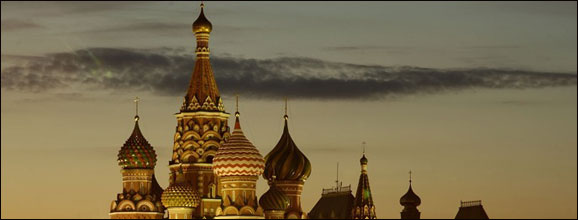The Russian Conundrum: Growing Economy, Failing Society
The Russian Conundrum: Growing Economy, Failing Society

The Tver Region, which lies two hundred kilometers to the north of Moscow in the direction of St. Petersburg, was the capital of a powerful medieval state. In 1246, Alexander Nevsky entrusted it to his brother Yaroslav Yaroslavich, and very soon this dynasty transformed an inhospitable and uncultivated land into one of Russia’s wealthiest and most populous states. The ensuing two-hundred-year battle for supremacy between Tver and Moscow is a much-visited historical subject.
The Volga runs through the city of Tver and continues southward to Yaroslav, Nizhniy Novgorod, Saratov, Volgograd (former Stalingrad), and Astrachan, where it enters the Caspian Sea. One small town in the region, Kostinovo, has found its way into the papers because it now has just one inhabitant, Antonina Makarova, age seventy-eight. Her nearest neighbor, Maria Belkova, lives in the next town, which has a population of two. As reported in the St. Petersburg Times of October 2006 by Kim Murphy, the number of inhabitants in the region has decreased by about 250,000 since 1989, and deaths exceed births by two to one. Kostinovo is one of the 1,400 towns in the Tver region that have been officially declared “depopulated” (nezhiloe).
Russia is one of the few countries in the world where life expectancy is declining; young people between the ages of fifteen and twenty-eight have the highest mortality rate in Europe. In the 1980s, citizens of the Soviet Union had the same life expectancy as citizens of the United States. Today, the Russian male lives on average to an age of fifty-nine, sixteen years less than his U.S. counterpart. About ten million Russians are sterile as a result of bad health or abortions that went wrong. According to the Academy of Medical Sciences, 45 percent of newborns have a disease or a congenital birth defect.
One typical story: when I first met him in the nineties, Oleg, age forty-two, was a respected assistant professor in the faculty of physics at the University of Perm in the Urals region and author of several articles in British and American academic journals. He went to the opera every week, and his three children took private violin lessons. For more than two months, he was my guide through the labyrinthine new market economy, and he introduced me to several entrepreneurs whom he knew personally. However, Oleg never managed to benefit from the new, post-Soviet wealth, and after offering his services to a few companies based in Perm, he was obliged to go back to doing translations and giving private lessons in mathematics. Today, he is recovering in the city hospital from the consequences of a heart attack. His wife tells me that ...
Subscribe now to read the full article
Online OnlyFor just $19.95 a year, get access to new issues and decades' worth of archives on our site.
|
Print + OnlineFor $35 a year, get new issues delivered to your door and access to our full online archives.
|




